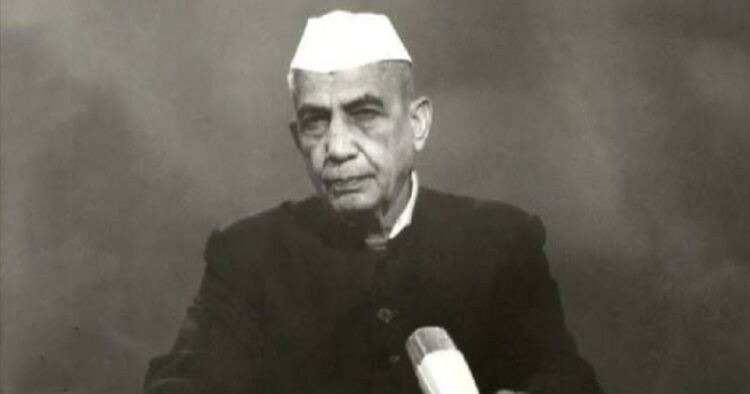Former Prime Minister Chaudhary Charan Singh has been posthumously honoured with Bharat Ratna, India’s highest civilian award. The announcement was made by Prime Minister Narendra Modi on February 9, highlighting Chaudhary Charan Singh’s unparalleled contributions to the nation, particularly his dedication to farmers and commitment to democracy during the Emergency.
Chaudhary Charan Singh, born on December 23, 1903, into a peasant family in Noorpur village near Hapur, Uttar Pradesh, emerged as a towering figure in Indian politics. His journey in public service began during the national movement, where he swiftly rose through the ranks of the Congress party. Notably, he was elected to the United Provinces Assembly from Chhaprauli in 1937, marking the beginning of his illustrious political career.
As a representative of the people, Chaudhary Charan Singh tirelessly advocated for the rights and welfare of rural communities, earning him widespread admiration and support. His tenure as a minister in the Uttar Pradesh cabinet saw the implementation of groundbreaking legislation for the abolition of zamindari and land ceiling, cementing his reputation as a champion of agrarian reform.
In 1967, amidst political upheaval in North India, Chaudhary Charan Singh made history by forming Uttar Pradesh’s first non-Congress coalition Government. His leadership, marked by alliances with socialist stalwarts like Ram Manohar Lohia and Raj Narain, reshaped the political landscape of the region, empowering marginalised communities and challenging the dominance of established political forces.
Despite facing challenges and coalition disruptions during his tenure as Chief Minister, Chaudhary Charan Singh’s legacy endured, propelling him onto the national stage. He played a pivotal role in the formation of the Janata Party Government in 1977, serving as Deputy Prime Minister under Prime Minister Morarji Desai.
Chaudhary Charan Singh’s unwavering commitment to the welfare of farmers and rural communities remained a defining feature of his political career. His influence transcended regional boundaries, earning him recognition as one of India’s tallest Jat leaders and a symbol of grassroots empowerment.
Reflecting on his enduring legacy, BJP stalwart L K Advani remarked, “Chaudhary Saheb initiated a debate that nobody did,” underscoring Chaudhary Charan Singh’s pivotal role in shaping the discourse on agrarian reform and rural development.
Chaudhary Charan Singh’s political lineage continues to thrive through his son Ajit Singh, who founded the Rashtriya Lok Dal (RLD) and served as a Union Minister. Today, his grandson Jayant Chaudhary leads the RLD, carrying forward the legacy of grassroots activism and social justice championed by his illustrious forebear.
The conferment of the Bharat Ratna upon Chaudhary Charan Singh serves as a fitting tribute to his remarkable contributions to the nation, reaffirming his enduring relevance as a beacon of democracy and a tireless advocate for the rights of the Indian peasantry.



















Comments